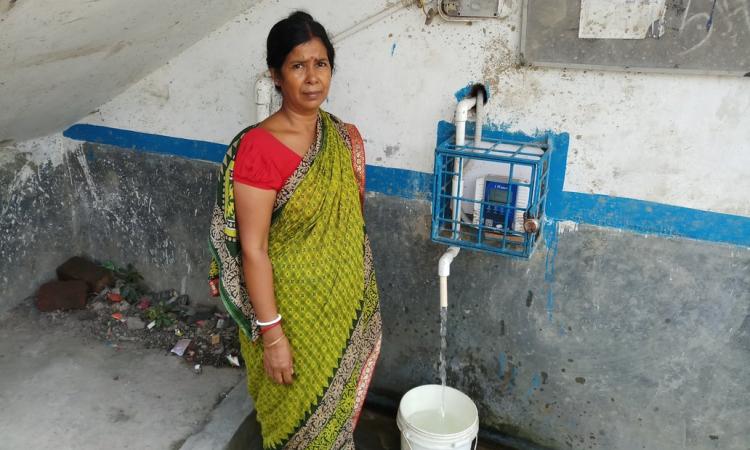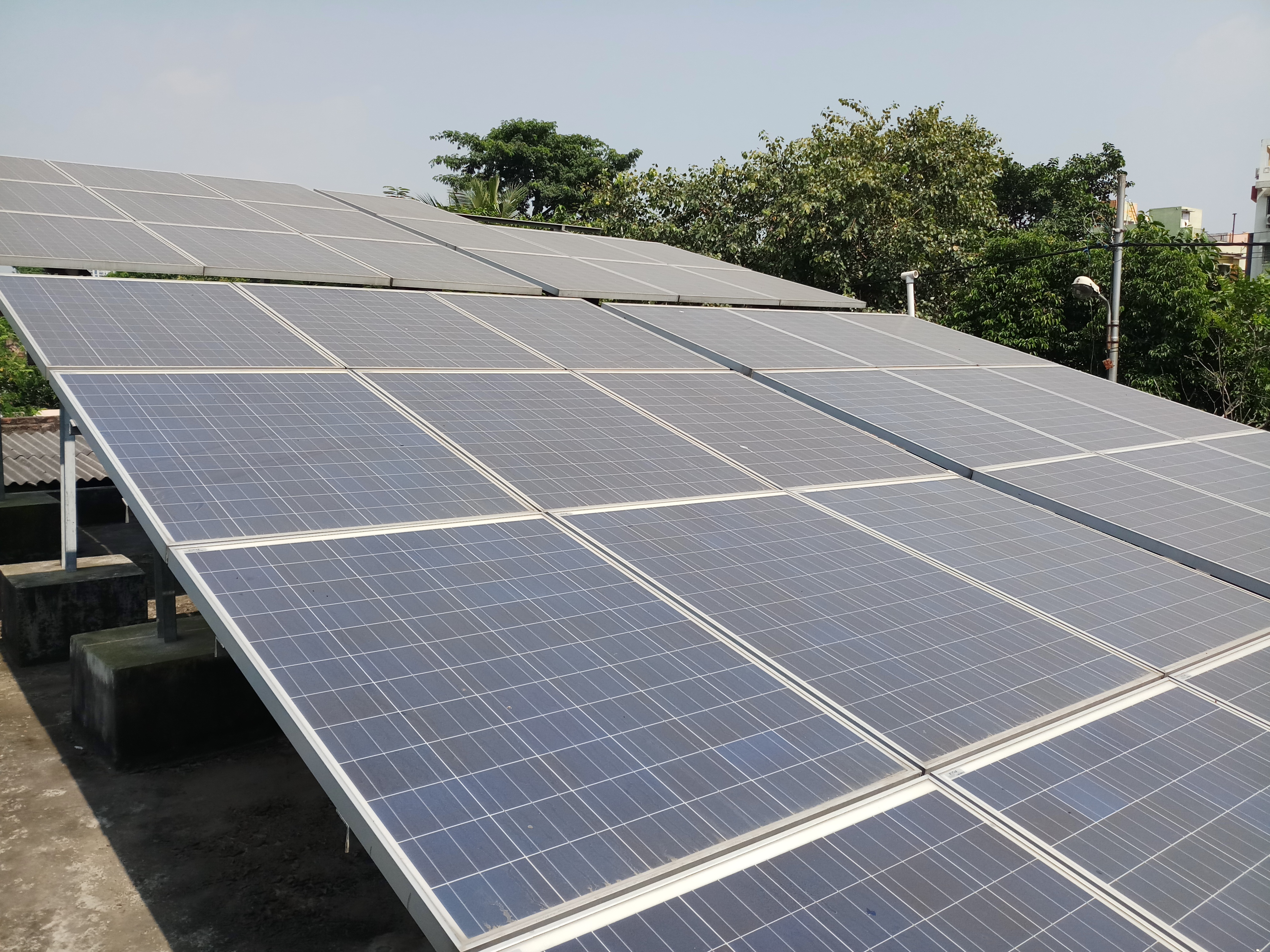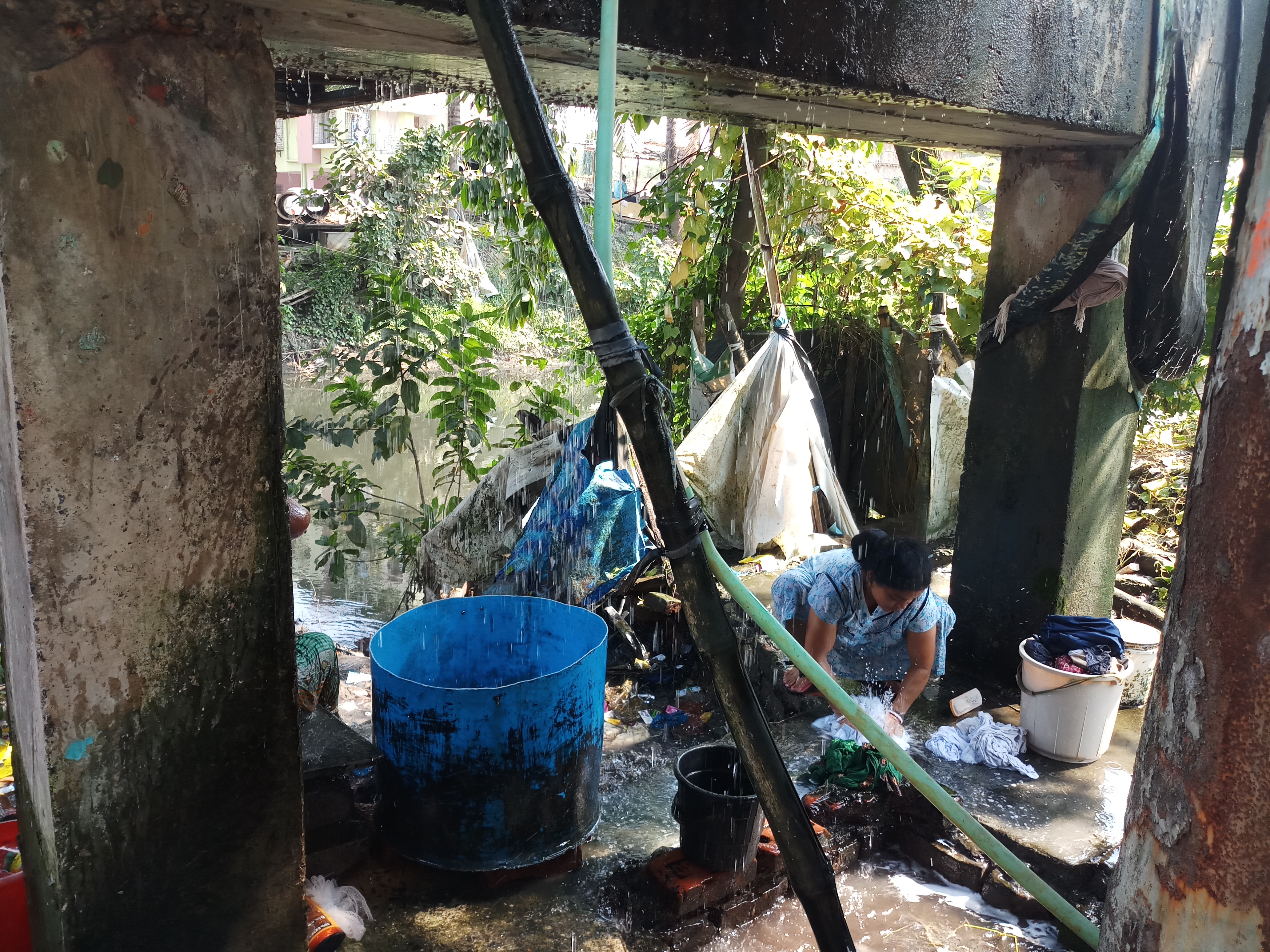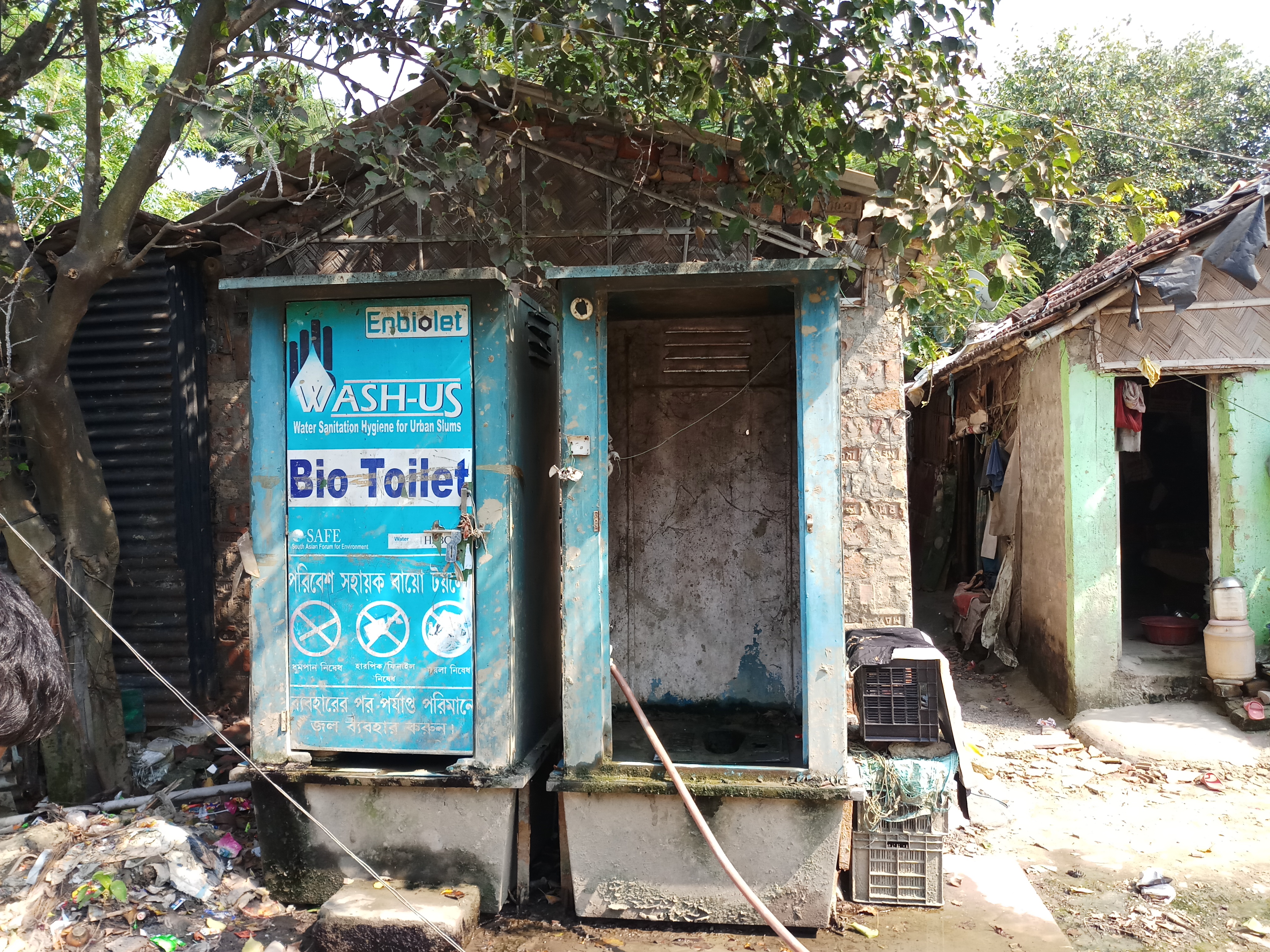
Basanti Haldar (45) has been living in a slum at Kalikapur in Kolkata for over two decades. She works as a domestic help in an upscale locality in the neighbourhood. She is happy nowadays due to an increase in her income.
The installation of Automated Dispensing Units (ADU) has not only provided her with clean potable water but have also saved her from the cumbersome job of standing in long serpentine queues for a bucket of water. She has time for more work that has also helped her earn better.
The two ADUs installed at Kalikapur slum under the WASH (Water and Sanitation Hygiene for Urban Poor) project in 2014 are operated by a solar water treatment plant. The Kolkata Municipal Corporation (KMC) has provided around one cottah of land for the project.
The units have come as a boon for the slum dwellers of Kalikapur which is one of the largest slums in the city with several thousands of people residing in its dingy lanes. They do odd jobs in different parts of the city for a living.
“The project has changed our lives as it has not only saved us from the trouble of rushing early to the taps and hand pumps but have also provided us with clean water. Earlier, we had to depend on a local pond for drinking water that was unhygienic. The defunct hand pumps added to our woes. We now get pure water 24x7 at a negligible price,” she says. 
Nila Shaw (45) who has a small grocery shop at Kalikapur concurs. “Earlier, I had to close my shop during the daytime to collect water when it was available which affected my business. We often suffered from ailments due to the presence of high level of arsenic in groundwater and also had to walk for more than a kilometre to obtain clean water from a tap in another locality when the taps and hand pumps here go out of order. The clean water has made life easier for us,” she says.
The units provide around 600 litres (20 litres every day) of drinking water to every household per month but they are charged only for 300 litres (Rs 50 paisa per litre) to make it sustainable.
Purified water, bio-toilets change scene
The water of the local pond is purified through a solar water treatment plant and dispensed through ADUs. “The project has benefitted over 4000 people in Kalikapur alone. We have been able to provide them with clean potable water which is available round the clock,” says Amrita Chatterjee, director (communications), South Asian Forum for Environment (SAFE), a civil society organisation that has implemented the project. 
Around 24 bio-toilets have been constructed in the slum for the dwellers and reverse osmosis helps in keeping them clean. Moreover, sanitation units are connected to the biogas used by the residents for cooking. The project runs completely on solar energy. The water is treated by reverse osmosis and the refuse water from the RO is reused in bio-sanitation units. The toilet refuse flows into biogas units, which powers the community kitchens. SAFE won UN Water for Life Award in the year 2015 for this project. This is the first of its kind project implemented in the country.
Apart from Kalikapur, similar projects are running in four places in the city and also in Sunderbans in North 24 Parganas and Purulia districts of West Bengal and also in the Northeastern states. The projects are funded by HSBC Water Programme and the World Bank.
The project facilitators also did capacity building in three tiers, of which the first was on awareness building about community hygiene and resource use through budgeted allocation and waste minimisation. In the second part, technical capacities were built among the community youth for managing and maintenance of solar power and water treatment plants to make the community independent. Financial inclusion and fiscal management at the community level composed the third tier of training for the members of joint liability groups which comprised community members represented mostly by women. The group organises community meetings and works to ensure overall community participation in the project.
No water for other domestic use
But everything is not hunky-dory for the residents of Kalikapur. Though the ADUs have managed to solve the potable water crisis to some extent, other issues continue to make their lives miserable. They are forced to bathe in the pond water because of the absence of water connectivity in their houses. “Our drinking water issue has been somewhat resolved but other problems persist. Our family members have to bathe in the dirty water of the pond in the absence of clean water and they contract diseases,” rues Rumi Biswas, a homemaker residing in the slum.
Interestingly, a leakage in the water pipe maintained by the Kolkata Municipal Corporation (KMC) has come as a major relief for the people of Kalikapur and residents of other slums living close to it. The residents have inserted a plastic bottle through the hole to fulfil their daily water requirement. “The leakage in the pipe passing overhead has been like a gift to us. We wash our clothes and also bathe below it. The water is also used for drinking as 300 litres provided every month through ADUs often fall short of our requirements. It is difficult to believe that people living in the heart of the city amidst high-risers have to survive on leakage,” says Ranjoy Haldar (47), a local resident.
Locals rue that the ‘godsend’ facility might just be temporary as the course of the pipe is likely to change once the construction of a flyover completes. “We pray that the pipe is not removed from its position otherwise, it will make our lives miserable once again,” he adds.
Project doesn’t go according to plan
The extent of water scarcity could be gauged from the fact that people often take home the water that is kept for cleaning the bio-toilets. Most of the time, the toilets remain dirty. “We try to keep the toilets clean but the shortage of water often forces people to take that water. We are helpless as the keys are with the local people who have the responsibility of keeping them clean. We have done our bit by offering clean, potable water. The government should also step into it to solve the pending issues,” says Dr Dipayan Dey, Chair, SAFE.
When contacted, the KMC officials says that the issues will be sorted out soon. “It is a newly built area so it is taking time for us to arrange water facilities for people. But it would be done in a few months. We will repair the leaking pipe as it is a wastage of water and will try to provide an alternative source of water to the people,” assures Bibhas Kumar Maiti, Director General (Water), KMC.
/articles/safe-solution-kalikapurs-water-problem